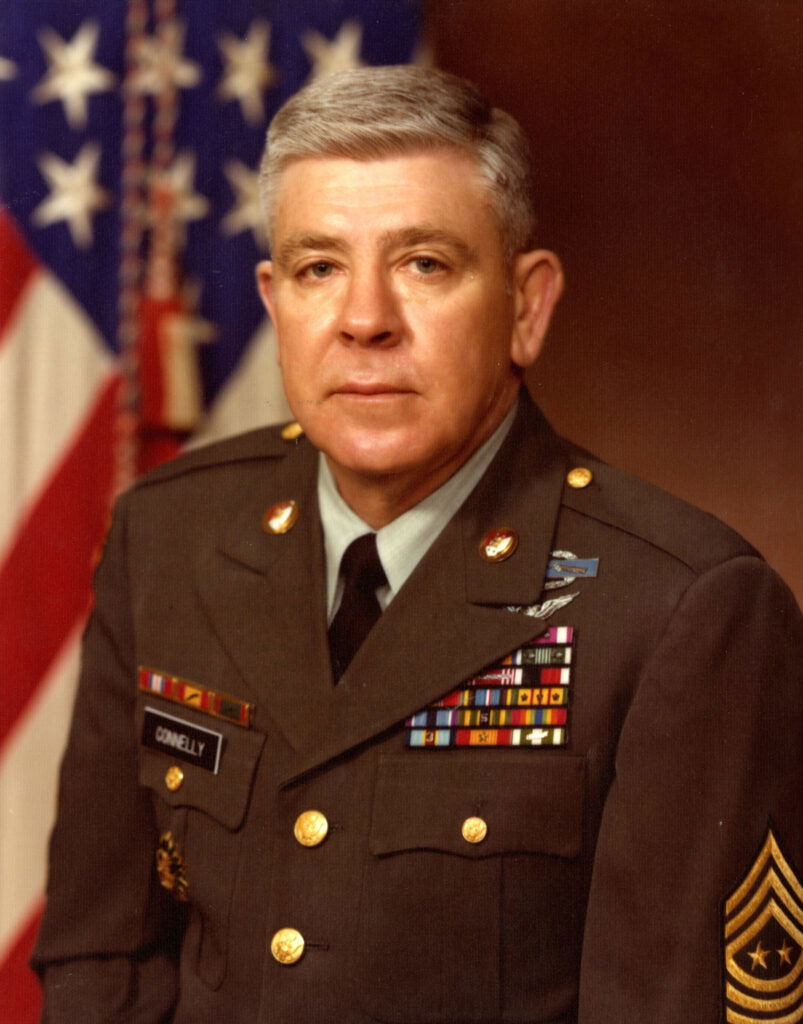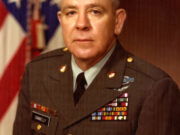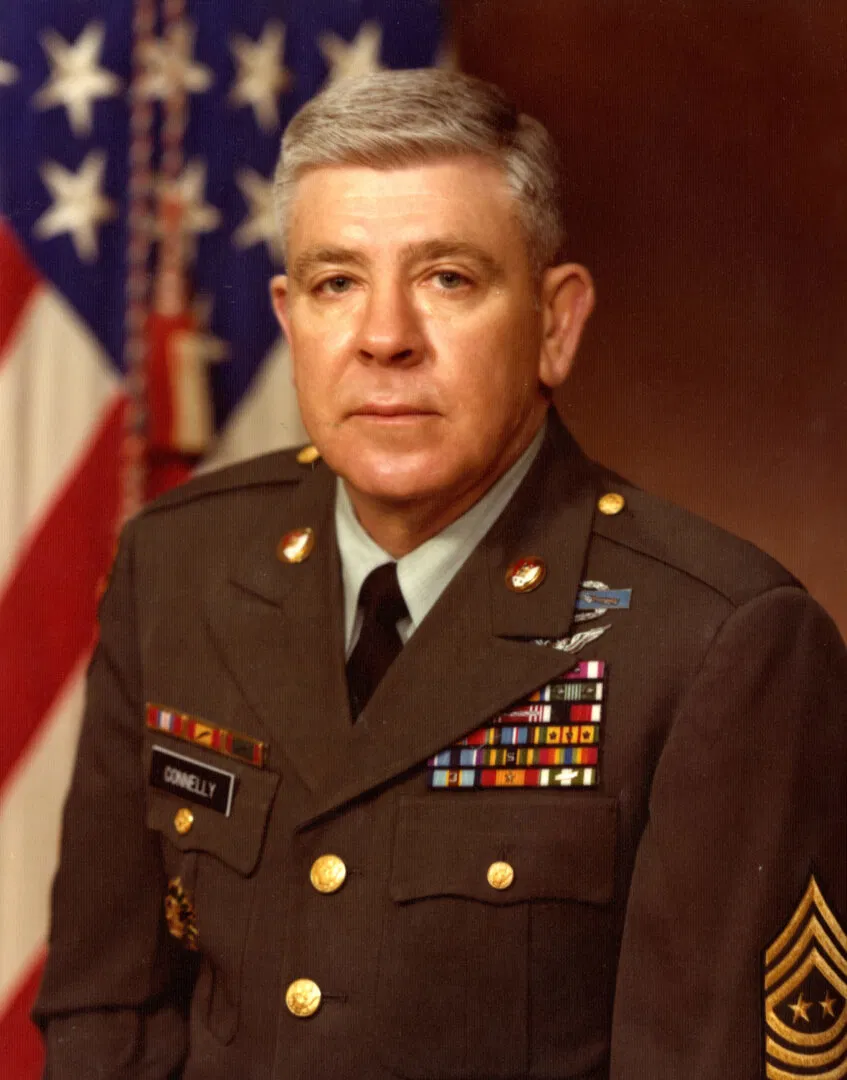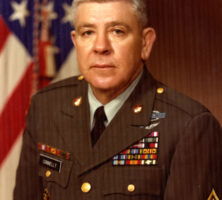As Sergeant Major of the Army, William A. Connelly served as the highest-ranking noncommissioned officer in the U.S. Army from 1979 to 1983—the sixth person to hold this rank and the only Georgian. In this capacity he served as “the eyes and ears” of the enlisted force, identifying areas of need across the soldiers’ spectrum, making those needs known, and representing the enlisted persons’ interests on armywide and nationwide levels of policymaking.

Connelly was born in Monticello, in Jasper County, on June 2, 1931. While serving in the Georgia National Guard, he received an associate degree from Georgia Southwestern College (later Georgia Southwestern State University) in Americus. After working in Macon, he entered the army in 1954 at the rank of sergeant first class. He commanded a company in Kentucky and a battalion in Germany, rotated back to Fort Benning, and returned to Germany in 1958. In 1961 he was assigned to a battalion instrumental in defending Allied interests during the Berlin, Germany, crisis. In 1964 he served at Fort Stewart as the Headquarters Company’s first sergeant of the Fourth Battalion, Sixty-eighth Armor, Second Infantry Division. But with the assassination of President Rafael Trujillo in the Dominican Republic, Sergeant Connelly was made first sergeant of the company deployed as part of the U.S. contingent of the Organization of American States mission to provide stability to that island nation.
During the ten-month deployment in the Dominican Republic, Connelly faced some of the greatest leadership challenges of his career. The company’s tanks fought off rebel forces and then maintained a relative but volatile peace until elections could be held. Afterward Connelly had hundreds of largely idle men crowded together in a tent camp on a small estate. His solutions to the soldiers’ social and health problems were creative. To raise morale he had soldiers imitate World War II (1941-45) German prisoners of war in rural Georgia tentcamps, tending flowers and plants around their tents.
Upon his return to the United States, Connelly advised the Georgia National Guard until his deployment to Vietnam in 1969. As first sergeant of Troop B, First Squadron, First Cavalry Division, he once again faced serious leadership challenges. While the troop became one of the most decorated units in Vietnam, drug use, racial strife, and poor training inhibited its performance. Connelly developed a system for detecting and confiscating drugs from soldiers, took action against racist acts, and trained his men in basic combat; for instance, he trained both enlisted soldiers and warrant officers to fire the weapons mounted on the troop’s helicopters.
In 1970 Connelly again returned to the United States, this time as first sergeant of the Reception Company at Fort Knox in Kentucky. In this capacity he gained new insights that added to the memory of his own basic-training experience and would later prove useful when he planned the revision of the inductee process, especially with the advent of the all-volunteer army.
With ten years of service as a first sergeant, Connelly was finally promoted to sergeant major and served in this capacity for both the First and Second Battalions of the First Training Brigade. He also became a member of the study group to make recommendations for the Noncommissioned Officer Education System. In 1972 he attended the Sergeants Major Academy at Fort Bliss, Texas, where he found a ready audience for his ideas for improving the system, especially the student selection process and the training offered.
After graduation Connelly was named command sergeant major of the First Battalion, Thirty-fifth Armor, First Infantry Division in Germany. When his battalion commander was promoted to general and assumed command of the Seventh Army Training Command, Connelly followed him. After eighteen months Connelly became command sergeant major of the First Armored Division. When his division commander could not meet a speaking engagement at the staff college at Fort Leavenworth, Kansas, in 1977, he sent Connelly in his stead. The sergeant so impressed the new FORSCOM (Forces Command) commander that he asked Connelly to apply for the command sergeant major position. Connelly did so and was selected; he then returned to Georgia to assume his post at Fort McPherson in Atlanta.
In his new capacity Connelly traveled constantly, addressing serious problems with poor training for the National Guard as the army revamped its division structures to group two active-duty brigades with one National Guard brigade. His work again attracted attention, and in 1979 he was recommended and selected for the highly competitive position of Sergeant Major of the Army. While in this position he worked to solve problems with retention, promotion, and equipment shortages, but his most significant contribution was to the structure and content of the Noncommissioned Officer Education System.
In 1983 Sergeant Major Connelly retired to Monticello, where he lived with his wife, Bennie. Connelly died in November 2019 at the age of eighty-eight. He received many awards and decorations during his military career, including the Distinguished Service Medal and the Bronze Star Medal.






